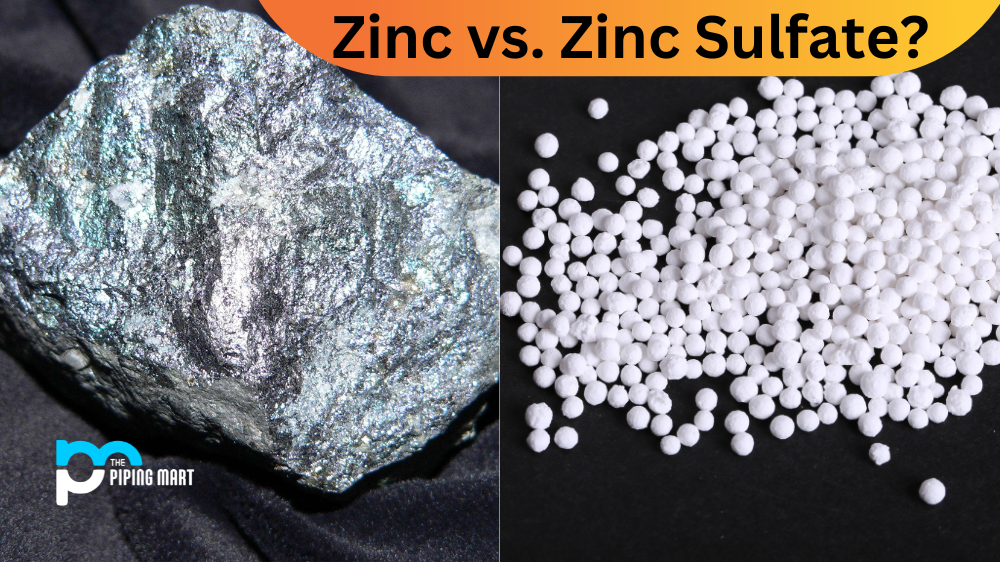When you want to make sure that your body has the necessary nutrients, minerals, and vitamins it needs, it can be hard to keep track of all the different supplements out there. Two common supplements are zinc and zinc sulfate. While these two have similar names, they are actually quite different from each other. Let’s take a look at what makes them unique.
What is Zinc?
Zinc is an essential mineral found in many foods, such as nuts, seeds, legumes, whole grains, red meat, eggs, and seafood. It plays an important role in many bodily functions, including cell production, wound healing, immune function, hormonal balance, and more. It also helps protect against oxidative stress—the imbalance between free radicals and antioxidants in the body—which can lead to chronic inflammation if left unchecked. The recommended daily allowance (RDA) for adult males 19 years of age or older is 11 mg per day; for adult females 19 years of age or older, 8 mg per day.
What is Zinc Sulfate?
Zinc sulfate is a form of zinc supplement that typically comes in tablet or capsule form. It’s usually used to treat conditions related to low levels of zinc, such as acrodermatitis enteropathica (a rare genetic disorder). It may also be used to treat skin conditions such as acne or psoriasis, as well as eye infections caused by bacteria or viruses. The typical dosage range for adults is between 25-50mg per day, depending on the condition being treated. Pregnant women should avoid using this supplement unless instructed otherwise by their doctor due to potential toxicity issues.
When Should I Take Zinc vs. Zinc Sulfate?
If you only need a small amount of additional zinc, then food sources should be enough to meet your needs without needing supplementation with either zinc or zinc sulfate specifically. However, if you have been diagnosed with a condition that requires additional supplementation, then your doctor may recommend either one based on your individual health needs. Generally speaking, though, it’s best to get your nutrients from food sources whenever possible, so make sure to speak with your doctor before starting any new supplement regimen, including those containing either type of zinc!
Conclusion:
All in all, understanding the differences between zinc and zinc sulfate can help you decide which supplement might be best for your individual needs when it comes time for supplementation. If you think that you might need additional dietary support from either one, then make sure to talk with your doctor first before making any changes on your own! Ultimately though, there’s no substitute for healthy eating habits when it comes time to get the necessary nutrients needed for good health!
Sakshee is a talented blogger, with a particular focus on the Business and Metal Industry. She is passionate about sharing her insights on various metal products and helping professionals to make a better decisions.




